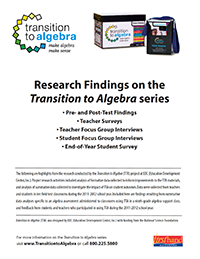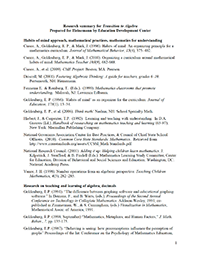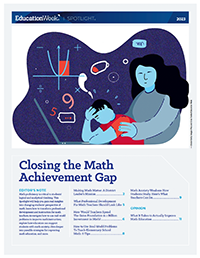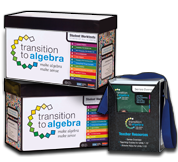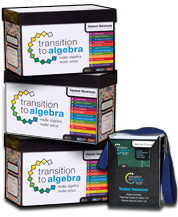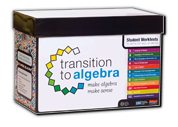Transition to Algebra
“To be successful with algebra, students must be able to shift their focus from the numbers themselves to reasoning about the operations on those numbers... students need targeted supports if they are to successfully cross the bridge from arithmetic to algebra.”
June Mark, E. Paul Goldenberg, Mary Fries, Jane M. Kang, and Tracy Cordner,authors of the Transition to Algebra series
Support your struggling algebra students with EDC's research-based Transition to Algebra
Many students struggle with algebra. Many students need to retake Algebra 1 multiple times just to pass. Even if they pass, many students are unable to think algebraically, lack mathematical strategies, and lack confidence as mathematicians.
Think about your algebra students. How many are highly successful? How many...
Developed by Education Development Center (EDC), Transition to Algebra is a classroom resource that approaches algebra instruction differently. Instead of reteaching the same algebra curriculum in the same way to struggling students, Transition to Algebra uses logic puzzles, problems, and explorations to help teachers uniquely build students' mathematical ways of thinking. It invites students to experience the coherence and meaning of mathematics-perhaps for the first time.
Transition to Algebra Units
- Unit 1: Language of Algebra
- Unit 2: Geography of the Number Line
- Unit 3: Micro-Geography of the Number Line
- Unit 4: Area and Multiplication
- Unit 5: Logic of Algebra
- Unit 6: Geography of the Coordinate Plane
- Unit 7: Thinking Things Through Thoroughly
- Unit 8: Logic of Fractions
- Unit 9: Points, Slopes, and Lines
- Unit 10: Area Model Factoring
- Unit 11: Exponents
- Unit 12: Algebraic Habits of Mind
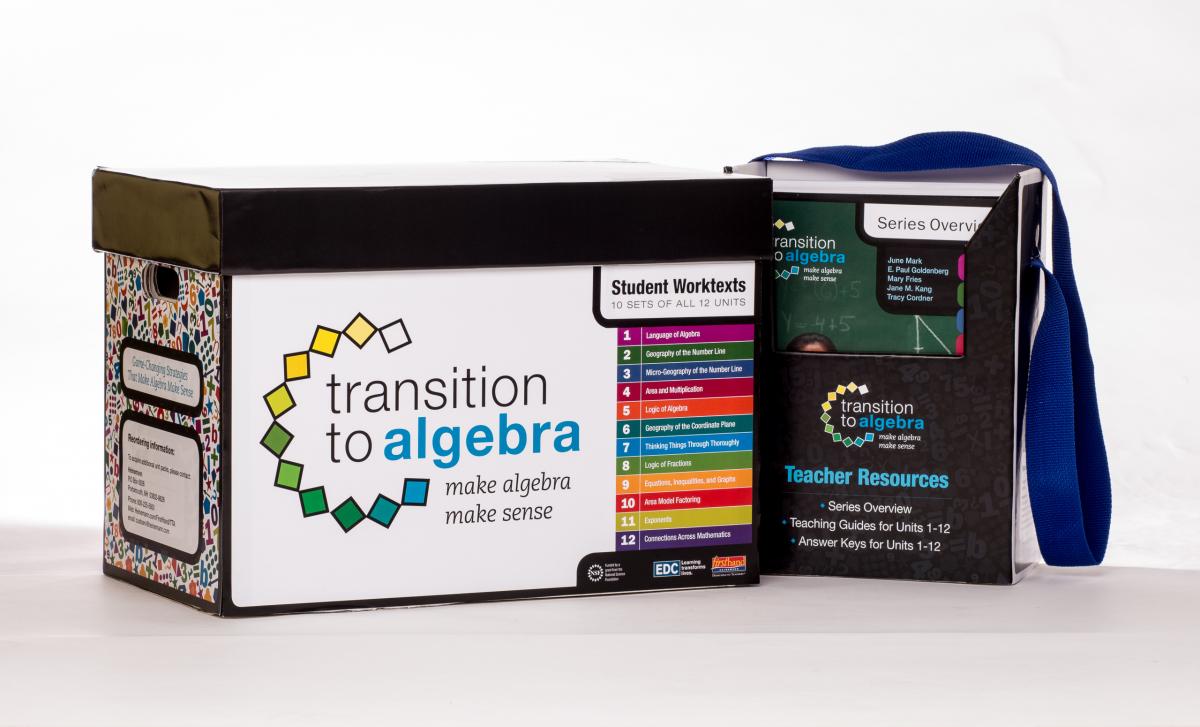
Explore Videos
Using Transition to Algebra
The power of head-less and tail-less word problems
How the Explorations in Transition to Algebra foster mathematical thinking
Author Interviews
Overview, Samples, and More
Transition to Algebra instruction is organized around 12 units, providing support in areas where students need the most help. Download the Program Overview below for a closer look at Teaching Guides, Answer Keys, Student Worktexts, digital resources for teaching and learning, and a correlation between algebra topics and TTA’s curriculum units. In the Puzzle Sampler you can learn more about the algebraic logic puzzles, problems, and explorations used to help students shift their ways of thinking from the concrete procedures of arithmetic to the abstract reasoning that success with algebra requires.
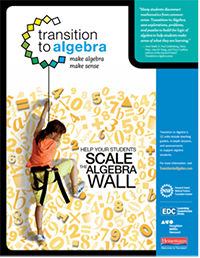
Program Overview
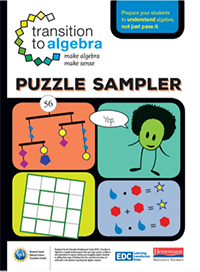
Puzzle Sampler
Research
Transition to Algebra (TTA) is an initiative of the Learning and Teaching Division at the Education Development Center, Inc. (EDC). Supported by the National Science Foundation, TTA seeks to quickly give students the mathematical knowledge, skills, and confidence to succeed in a standard first-year algebra class and to show them that they can explore mathematics and actually enjoy it. For a closer look at the research that informed TTA, check out the resources listed below.
Shop Transition to Algebra
Related Resources
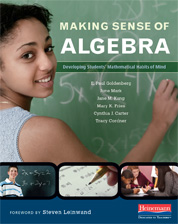
Making Sense of Algebra
In Making Sense of Algebra, the Transition to Algebra author team debunks the common misconception that algebra is simply a collection of rules to know and follow by delving into how we think about mathematics. This "habits of mind" approach is concerned not just with the results of mathematical thinking, but with how mathematically proficient students do that thinking.
SolveMe Mobiles
Solve and build interactive mobile puzzles like those in units 1 and 5 of Transition to Algebra.
Try SolveMe Mobiles



